History

Any serious treatment of the renewal of socialism today must begin with capitalism’s creative destruction of the bases of all social existence. Since the late 1980s, the world has been engulfed in an epoch of catastrophe capitalism, manifested today in the convergence of (1) the planetary ecological crisis, (2) the global epidemiological crisis, and (3) the unending world economic crisis. Added to this are the main features of today’s “empire of chaos,” including the extreme system of imperialist exploitation unleashed by global commodity chains; the demise of the relatively stable liberal-democratic state with the rise of neoliberalism and neofascism; and the emergence of a new age of global hegemonic instability accompanied by increased dangers of unlimited war. | more…
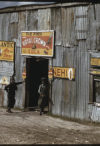
Racial Capitalism, the Settler State, and the Challenges Facing Organized Labor in the United States
Organized labor—based on white-exclusive and later white-dominated, though not necessarily exclusive, trade unions—formed itself as part of the settler state, not in the sense of being an apparatus of the state, but in the sense of accepting certain important precepts. The unions took for granted the nature of the settler state and, as such, conceived that the unions were to exist to serve the “legitimate” population, or at least the working class of the legitimate population. | more…
Overcoming the HIV/AIDS and Special Period crises prepared Cuba for COVID-19. Aware of the intensity of the pandemic, Cuba knew that it had two inseparable responsibilities: to take care of its own with a comprehensive program and to share its capabilities internationally. | more…
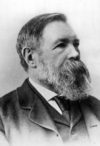
At the bicentenary of his birth, Frederick Engels’s reputation as an original thinker is, among Anglophone academics at least, at its nadir. Despite the recent global economic crisis and associated increases in inequality that have tended to confirm Karl Marx and Engels’s general critique of capitalism, Marxism is an optimistic doctrine that has not fared well in a context dominated by working-class retreat and demoralization. But if this context has been unpropitious for Marxism generally, criticisms of Engels’s thought have a second, quite separate, source. Over the course of the twentieth century, a growing number of commentators have claimed that Engels fundamentally distorted Marx’s thought, and that “Marxism” and especially Stalinism emerged out of this one-sided caricature of Marx’s ideas. | more…

In 1952, the West African nation of Ghana, recently having freed itself from British imperialism, set out on a project of radical economic reconstruction unmatched anywhere on the continent in scope and ambition. Having attained political independence with the creation of a sovereign parliament and executive office, the Convention People’s Party under the leadership of Kwame Nkrumah drew up extensive plans for ensuring the conditions necessary for real, not just on-paper, independence. | more…
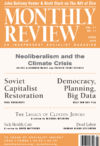
Today, at the bicentennial of Frederick Engels’s birth, it is worth taking a brief look at Engels’s theory of the labor aristocracy, its connection to V. I. Lenin’s thinking, and the significance of these ideas in light of the current capitalist conjuncture. | more…

In 1950, the mainly Mexican and Mexican-American members of the International Union of Mine, Mill and Smelter Workers Local 890 went on strike against Empire Zinc in southern New Mexico. One of the only fair-haired and pale-skinned union men in meetings and jail was Mine Mill organizer Clinton Jencks. Raymond Caballero’s study, McCarthyism vs. Clinton Jencks, exhaustively details how the federal government brought the entire weight of its repressive apparatus down on the heads of Jencks, his family, and his union siblings. | more…

Since the Great Financial Crisis of 2007–09, Hyman Minsky (1919–96) has been widely recognized as one of the late twentieth century’s most insightful economic theorists. Nevertheless, if Minsky had still been alive at the time of the Great Financial Crisis, there would have been little likelihood that his new-found reputation would have resulted in his receiving the Nobel Prize in Economics given his heterodox and socialist economic views. | more…

Seattle in 1919 was an island in a still immeasurable sea of timber. The Pacific coastal forests were estimated to contain nearly two-thirds of the timber in the country, and the Washington State forests accounted for the largest part of these. The physical hardships associated with the lumber industry, including isolation deep within the rain forests, made working conditions an even more miserable burden than low wages. The work was seasonal and layoffs were common; the completion of one job might mean termination and the search for work elsewhere. When the winter rains brought an end to work in the woods, the state’s loggers fled to the city, not welcome elsewhere. In some years, there might be thousands on Seattle’s streets. | more…

Healing through the stories we rescue and the history we make is what Aurora Levins Morales’s Medicine Stories: Essays for Radicals is about. The author, a historian curandera, compiled a series of twenty-eight essays in this second edition, published twenty years after the first. Levins Morales theorizes movements for social justice and how to overcome challenges faced by activists and all those fighting and resisting oppression. She does this through accounts of her studies, personal experiences, and social conditions, providing a view of the world that allows collective healing and encourages it in others through a comprehensive understanding of history. | more…
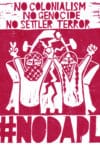
The “turn toward the indigenous” in social theory in the last couple of decades, associated with the critique of white settler colonialism, has reintroduced themes long present in Marxian theory, but in ways that are often surprisingly divorced from Karl Marx’s critique of capitalism, colonialism, and imperialism. | more…
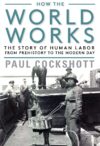
Few authors are able to write cogently in both the scientific and the economic spheres. Even fewer possess the intellectual scope needed to address science and economics at a macro as well as a micro level. But Paul Cockshott, using the dual lenses of Marxist economics and technological advance, has managed to pull off a stunningly acute critical perspective of human history, from pre-agricultural societies to the present. In How the World Works, Cockshott connects scientific, economic, and societal strands to produce a sweeping and detailed work of historical analysis. This book will astound readers of all backgrounds and ages; it will also will engage scholars of history, science, and economics for years to come. | more…










